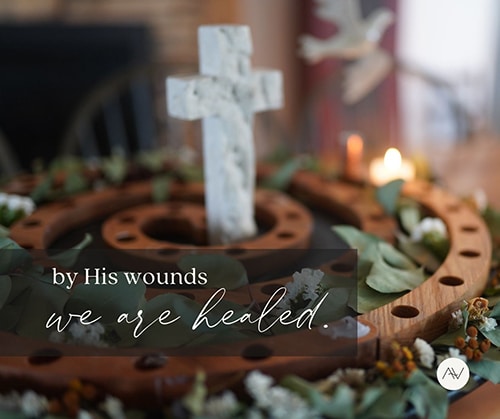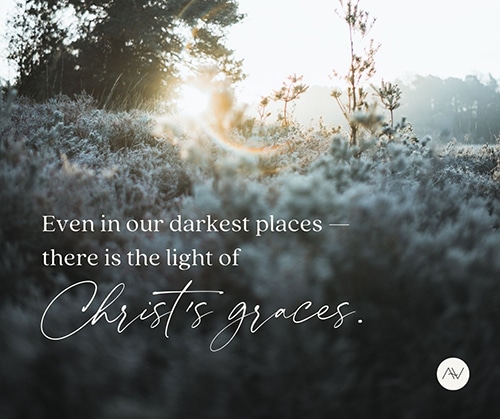I really love this woman and her work has been so formational in my own walk with the Lord toward wholeness in Him. Beacuse it’s true: Our emotions can feel so hard and so complicated, and yet God designed us to feel deeply! In her new book, I Shouldn’t Feel This Way, Dr. Alison Cook is helping us to untangle the emotions that we feel about ourselves, about others, and even about God. Today’s post zooms in on the painful feelings so many of us experience about our own bodies. I am thrilled to welcome Dr. Alison to the farm’s front porch today. . .
Guest Post by Dr. Alison Cook
So many of us struggle with conflicting feelings about our bodies.
We know we “should” care for our bodies, but so often those guilt messages become the only messages we tell ourselves.
I should eat healthier.
I should exercise.
I should do this.
I shouldn’t do that.
I shouldn’t feel this way about my body.
Talk about dissonance! We want to feel healthy in our bodies, but so often we ignore their cries for help or the warning signals they send. We analyze, criticize, or guilt-message ourselves about our bodies. We might even abuse or neglect them, only to give them a quick fix when their poor, tired selves beg for our attention.
This has certainly been my experience, and it’s the experience of many of my clients. Yet our bodies need us, and we need our bodies.






At the Crossroads with Our Bodies
Your body is so much more than a frame for your outward appearance. It weaves together all the different pieces of your soul through a complex system of neurons and cells and the nervous system, with your brain at its epicenter.
It encases your soul with skin and hair. It has eyes to see, ears to hear, and a mouth to express and interact with the world around you. Your body serves as your visible presence in the world—it keeps you from being invisible.
Your body is also intimately involved in all your decisions. Your nervous system not only orchestrates your physical movements but also helps you process feelings of fear, joy, pain, and stress. It detects threats and mobilizes you to take action. It carries the burdens of past trauma, often silently, on your behalf.
“Instead of fully inhabiting our bodies—caring for them and allowing them to care for us—we attempt to sideline them. “
Perhaps we haven’t been fully taught ways to honor this body, so that we are left feeling so vulnerable: vulnerable to painful emotions, to sickness, and to scrutiny. Vulnerable to a world that can feel dangerous. So often we secretly despise our bodies for not shielding us from pain, shame, and judgment from others. Instead of fully inhabiting our bodies—caring for them and allowing them to care for us—we attempt to sideline them.
We can tend to disregard the cues that our bodies are desperately trying to send us. Why can’t I just get it together? we say to ourselves, instead of noticing tension or a sudden onset of exhaustion as an opportunity to name something that feels hard—and taking the opportunity to gently care for ourselves. Stop being so anxious! We yell at ourselves, instead of reflecting, I wonder what my body is trying to tell me?
If you, as I have, criticized or guilt-messaged your body in any of these ways, I promise you that we can change. Together, we can build a healthier framework through which to view our bodies.
God Came To Us in a Body
This idea that the body matters is as ancient as the days. Despite several early heresies that denied the goodness of the body, orthodox Christian theology maintains that the body is an integral part of the human person, a part of the goodness of God’s creation.
This view of the body is rooted in the belief that God created human beings in his image and likeness (Gen. 1:27). God called his creation good before sin entered in, and that creation includes the human body.
“Your body is the dwelling place for the living God. It’s a place of honor, a place that is sacred, a place to tend with care and wonder, as you might care for any sacred dwelling.“
We see the dignity of the body illustrated in numerous ways throughout Scripture. In John 14, when Jesus promised the coming of the Holy Spirit, he said that it would dwell within our bodies. Paul expanded on this point in 1 Corinthians 6:19–20 when he said, “The physical part of you is not some piece of property belonging to the spiritual part of you. God owns the whole works. So let people see God in and through your body” (MSG).
Your body is the dwelling place for the living God. It’s a place of honor, a place that is sacred, a place to tend with care and wonder, as you might care for any sacred dwelling.
And, finally, we see the dignity in the body in the fact that Jesus came in a body.
Jesus lived in a body.
Jesus died in a body.
Jesus was resurrected in a body.
Too often we gloss over the reality of what that statement means: Jesus was resurrected in a body.
His resurrected body was the same body, even though it looked a little different. At the ascension, when Jesus returned to heaven, his body went with him. (Luke 24:51; Acts 1:9–11). The physical ascension of Jesus suggests that our bodies will still be with us on the other side of this life.
Your body is not an inconvenience. It’s not something to put up with until you become a disembodied soul in heaven. Your body matters. It matters now, and it matters for all eternity.






Braving Embodiment
The goal isn’t to control your body, the goal is to attune to your body’s needs.
Each morning when you pray or journal, you might practice attuning to your body’s needs. When you attune to someone else, you become aware of and responsive to their emotional states and needs.
A mother attunes to her baby when she searches for clues for why the baby might be crying. You attune to a loved one when you seek to understand a downcast facial expression or slumped posture. Likewise, you attune to your body when you notice and respond to the various cues it is sending, such as fatigue, tension, hunger, a pit in your stomach, or an increased heart rate. Each of these cues represents more than a physical state—it’s also a clue to your emotional state and your environment. In other words, as you attune to your body, you attune to your whole being.
“The goal isn’t to control your body, the goal is to attune to your body’s needs.“
Healing starts as you gently get curious about new possibilities. . .
Instead of exhausted: My body needs care.
Instead of weak: My body is intricately designed.
Instead of broken: My body is healing.
Instead of ugly: My body is beautifully made.
Instead of old: My body is wise.
Instead of scarred: My body is resilient.
Instead of shameful: My body is a masterpiece (Eph. 2:10).
The work of braving embodiment can feel seismic at first.
Slowly, you start to realize that your body is the very best sort of friend.
A friend who gently speaks up when you’re overextending yourself. A friend who lets you know when you need a rest. A friend who lights up with joy when you shower it with good, nourishing activities.
A friend who loves you back.

Dr. Alison Cook is a therapist and podcast host who specializes in combining faith and psychology. The excerpt she shares today is from her recently released book, I Shouldn’t Feel This Way: Name What’s Hard, Tame Your Guilt, and Transform Self-Sabotage into Brave Action.
Drawing from over twenty years of research and clinical practice, I Shouldn’t Feel This Way guides you through a groundbreaking 3-step process that has helped tens of thousands of people find emotional freedom and surprisingly simple breakthroughs. Dr. Alison shows you how to
- identify guilt and know what to do with it,
- trade feeling stuck in your head for clarity,
- move from comfortable numbing to courageous conversations, and
- make decisions that break cycles of defeat.
Change starts when you finally stop beating yourself up for the way that you feel and say, You know what? I do feel this way! And I can read and prayerfully engage and finally do something about it.
{Our humble thanks to Thomas Nelson for their partnership in today’s devotional.}







